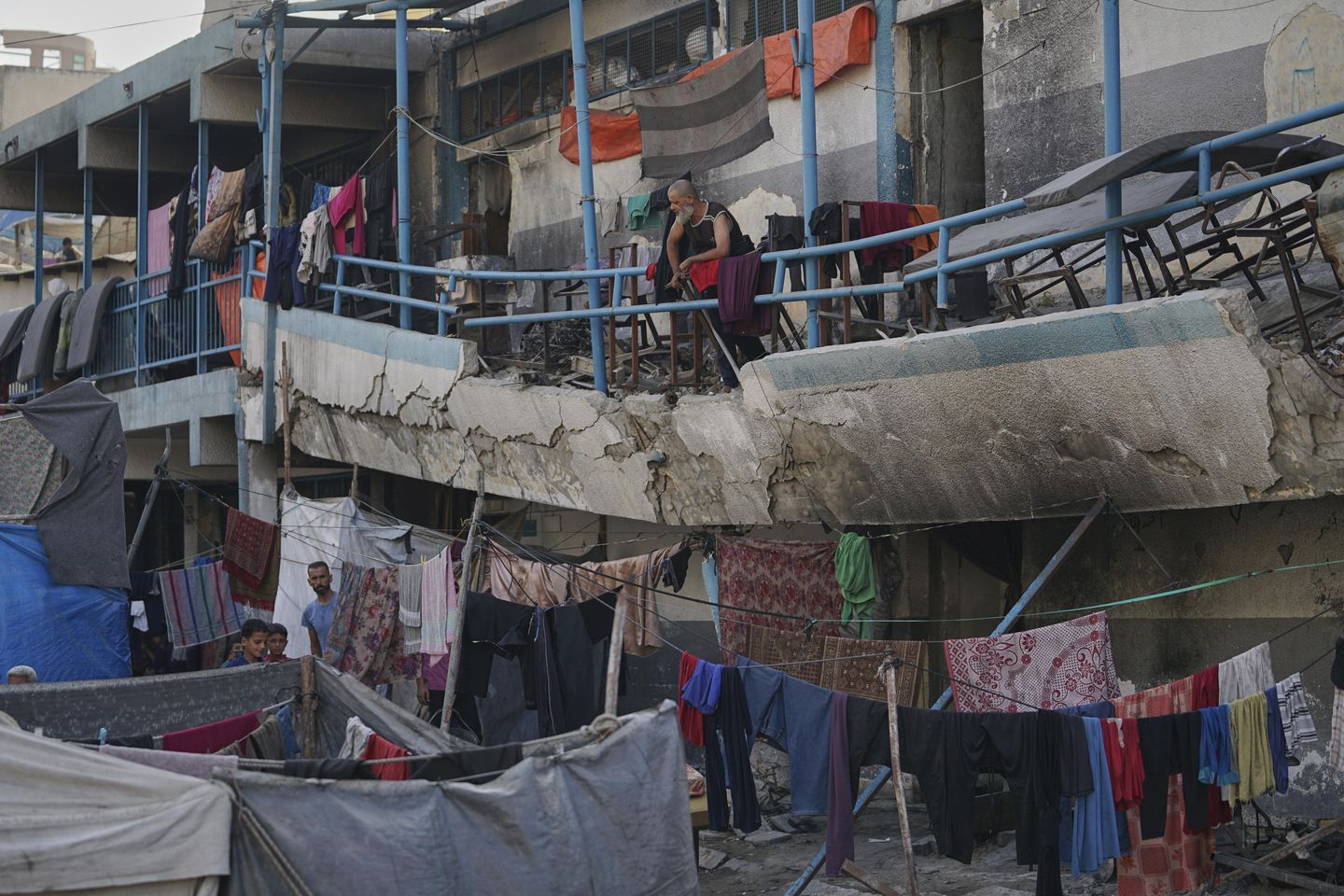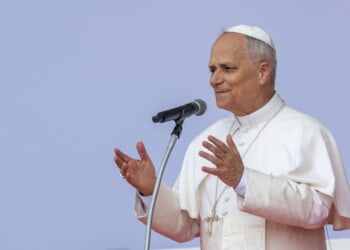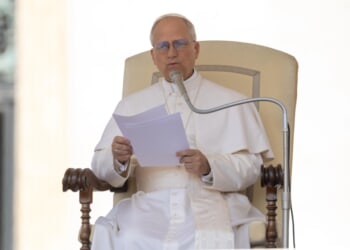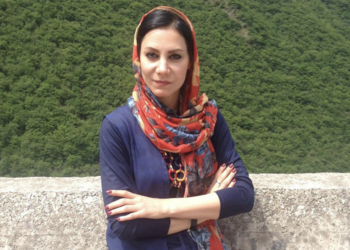
GAZA CITY, Gaza Strip — Israeli and U.S. officials were to meet Wednesday in Washington to discuss post-war Gaza, even as Israel’s military called the evacuation of Gaza City “inevitable” ahead of a new offensive and no sign of a ceasefire in sight.
The meeting comes amid mounting outrage over this week’s double Israeli strike on a southern Gaza hospital that killed journalists, emergency responders and others. The toll from the attack on Nasser Hospital rose to 22 after two more people died Wednesday, Gaza health officials said.
The Israeli military, which has said it will investigate, offered no immediate explanation for striking twice and no evidence for an assertion that six of the dead were militants.
As a growing chorus of international leaders urge Israel to reconsider its offensive and commit to talks, Pope Leo XIV called for Israel to halt the “collective punishment” and forced displacement of Palestinians in Gaza.
Aid groups warn that an expanded Israeli military offensive could worsen the humanitarian crisis in the besieged territory, where most of the over 2 million residents have been displaced, neighborhoods lie in ruins and a famine has been declared in Gaza City.
The Israeli military on Wednesday told residents of Gaza City to prepare to leave.
“The evacuation of Gaza City is inevitable,” spokesperson Avichay Adraee wrote in Arabic on X. He said Israeli forces have surveyed vast empty areas south of the city “to assist the evacuating residents as much as possible.” He said the displaced would receive space for tents, and infrastructure would be set up to distribute aid and water.
More than 80% of Gaza is designated as an Israeli military zone or subject to displacement orders, the U.N. humanitarian agency said in June.
Israel has pressed ahead with plans to mobilize tens of thousands of reservists. Prime Minister Benjamin Netanyahu has said the military will launch its offensive while simultaneously pursuing a ceasefire.
Hamas said last week that it accepted a ceasefire plan from Arab mediators.
Qatar, which has rarely assigned blame through more than a year of mediation, said Tuesday that Israel has yet to officially respond and “does not want to reach an agreement.” Last week, an official from Qatar said the proposal under discussion was “almost identical” to an earlier draft that U.S. envoy Steve Witkoff put forth and Israel accepted.
The deal said to be under discussion would include a 60-day truce, the release of some of the 50 remaining hostages held by Hamas in return for hundreds of Palestinian prisoners, a surge of humanitarian aid into Gaza and a road map toward talks on a lasting ceasefire.
Many in Mr. Netanyahu’s coalition oppose such a phased deal. Meanwhile, protests have swelled in Israel as hostages’ families and their supporters press for a ceasefire. The government argues that a widened offensive is the best way to bring them home and cripple Hamas’ capacity to launch future attacks.
Mr. Witkoff has said the official U.S. position was that hostages — Hamas’ main source of leverage — should no longer be part of negotiations. He told Fox News the talks should instead focus on issues such as Gaza’s future and how to define Hamas in that context.
At least 39 Palestinians were killed and dozens wounded Wednesday across the Gaza Strip, the majority of whom died in Israeli strikes and gunfire, according to Gaza health officials.



![Steak ’n Shake Mocks Cracker Barrel Over Identity-Erasing Rebrand [WATCH]](https://www.right2024.com/wp-content/uploads/2025/08/Steak-n-Shake-Mocks-Cracker-Barrel-Over-Identity-Erasing-Rebrand-WATCH-350x250.jpg)




![Mount Rushmore Could Get Trump Upgrade Under GOP Push [WATCH]](https://www.right2024.com/wp-content/uploads/2025/07/Mount-Rushmore-Could-Get-Trump-Upgrade-Under-GOP-Push-WATCH-350x250.jpg)
![Soros Network, Others Behind LA Riots [WATCH]](https://www.right2024.com/wp-content/uploads/2025/06/Soros-Network-Others-Behind-LA-Riots-WATCH-350x250.jpg)
![Human Trafficking Expert Details Horrific Biden Admin Endangerment of Migrant Kids [WATCH]](https://www.right2024.com/wp-content/uploads/2025/07/Human-Trafficking-Expert-Details-Horrific-Biden-Admin-Endangerment-of-Migrant-350x250.jpg)





